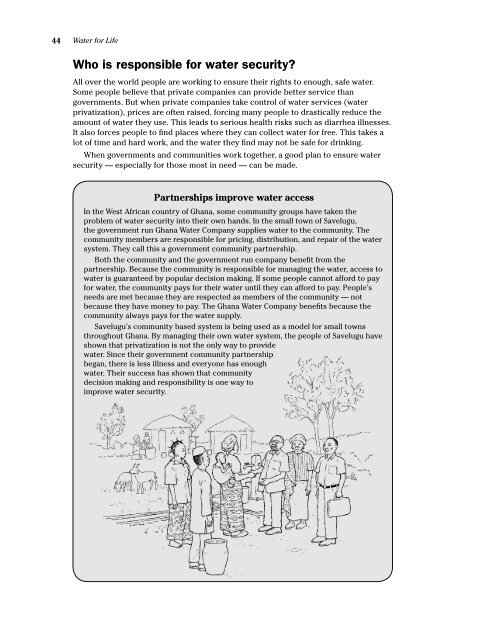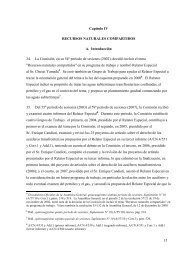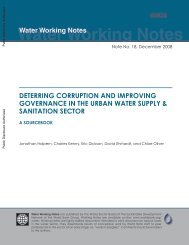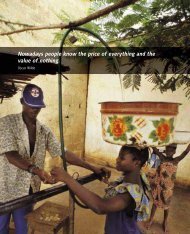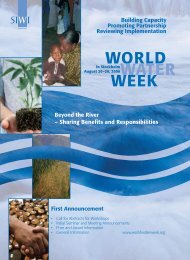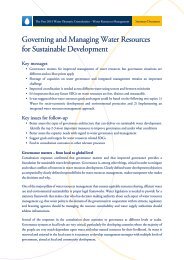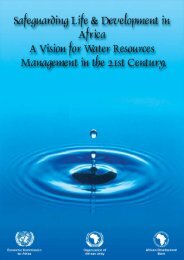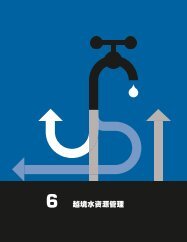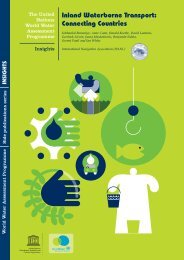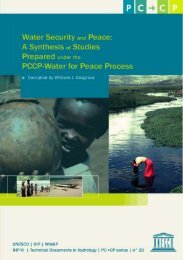Community water security - UN-Water
Community water security - UN-Water
Community water security - UN-Water
You also want an ePaper? Increase the reach of your titles
YUMPU automatically turns print PDFs into web optimized ePapers that Google loves.
44<br />
<strong>Water</strong> for Life<br />
Who is responsible for <strong>water</strong> <strong>security</strong>?<br />
All over the world people are working to ensure their rights to enough, safe <strong>water</strong>.<br />
Some people believe that private companies can provide better service than<br />
governments. But when private companies take control of <strong>water</strong> services (<strong>water</strong><br />
privatization), prices are often raised, forcing many people to drastically reduce the<br />
amount of <strong>water</strong> they use. This leads to serious health risks such as diarrhea illnesses.<br />
It also forces people to find places where they can collect <strong>water</strong> for free. This takes a<br />
lot of time and hard work, and the <strong>water</strong> they find may not be safe for drinking.<br />
When governments and communities work together, a good plan to ensure <strong>water</strong><br />
<strong>security</strong> — especially for those most in need — can be made.<br />
Partnerships improve <strong>water</strong> access<br />
In the West African country of Ghana, some community groups have taken the<br />
problem of <strong>water</strong> <strong>security</strong> into their own hands. In the small town of Savelugu,<br />
the government run Ghana <strong>Water</strong> Company supplies <strong>water</strong> to the community. The<br />
community members are responsible for pricing, distribution, and repair of the <strong>water</strong><br />
system. They call this a government community partnership.<br />
Both the community and the government run company benefit from the<br />
partnership. Because the community is responsible for managing the <strong>water</strong>, access to<br />
<strong>water</strong> is guaranteed by popular decision making. If some people cannot afford to pay<br />
for <strong>water</strong>, the community pays for their <strong>water</strong> until they can afford to pay. People’s<br />
needs are met because they are respected as members of the community — not<br />
because they have money to pay. The Ghana <strong>Water</strong> Company benefits because the<br />
community always pays for the <strong>water</strong> supply.<br />
Savelugu’s community based system is being used as a model for small towns<br />
throughout Ghana. By managing their own <strong>water</strong> system, the people of Savelugu have<br />
shown that privatization is not the only way to provide<br />
<strong>water</strong>. Since their government community partnership<br />
began, there is less illness and everyone has enough<br />
<strong>water</strong>. Their success has shown that community<br />
decision making and responsibility is one way to<br />
improve <strong>water</strong> <strong>security</strong>.


